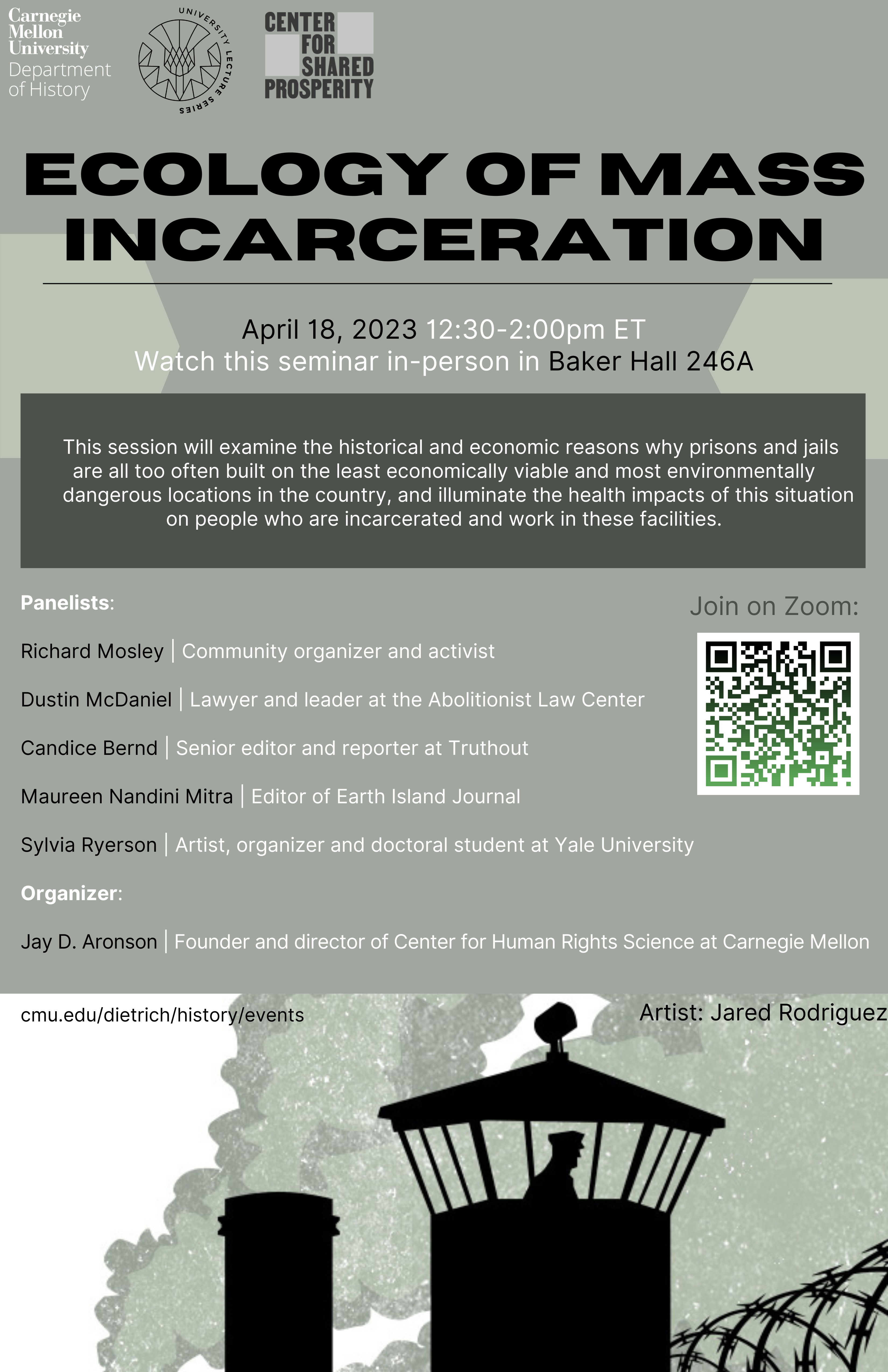The Ecology of Mass Incarceration
Low income, Black, and other marginalized communities are far more likely to bear the negative impacts of environmental degradation and pollution than wealthier and whiter communities. They are also the ones most harmed by mass incarceration. These twin injustices are not coincidental. They are intimately linked. Participants in this online session will explain the historical and economic reasons why prisons and jails are all too often built on the least economically viable and most environmentally dangerous locations in the country—including exhausted coal mining and logging sites, active Superfund cleanup sites, and recently closed landfills. We will also explore the implications of this situation on the health and well-being of the people who are incarcerated or work there.
Event Details:
Date: April 18, 2023
Time: 12:30 p.m. - 2:00 p.m. ET
Location: Zoom and in-person in Conference Room 246A, Baker Hall
Zoom link: https://cmu.zoom.us/webinar/register/WN_etL55wPGRcWFGXiBF_MS5A
Panelists:
Dustin McDaniel is a lawyer who leads the Abolitionist Law Center’s work on mass incarceration and environmental justice. McDaniel was the lead investigator and editor of No Escape, a 2014 report on environmental and health conditions at State Correctional Institution Fayette, as well as a lead organizer and attorney representing ALC in the Barroca v. Bureau of Prisons NEPA lawsuit to stop construction of a $500 million federal prison in Letcher County, KY.
Candice Bernd is a senior editor and reporter at Truthout. Her work has also appeared in several other publications. She regularly writes about immigration, labor, environmental issues, mass incarceration, and their intersections, including in a 2017 long-form article co-published in Truthout and in Earth Island Journal (https://earthisland.org/
Maureen Nandini Mitra is the editor of Earth Island Journal, an award-winning, international environmental magazine based in Berkeley, California, and environmental journalist. She started her career at The Statesman, Kolkata, and has worked with several US and Indian publications over the past two decades.
Sylvia Ryerson is a multimedia artist, organizer, and doctoral student at Yale University. For over a decade her work—rooted at the intersection of scholarship, activism, and art—has probed the overlapping crises of mass incarceration, rural poverty, and environmental destruction. From 2010–2015, Sylvia worked at the renowned documentary arts center Appalshop, where she served as a reporter, producer, WMMT-FM Director of Public Affairs, and led production of the nationally recognized Calls from Home radio show. Her recent documentary film about the show, A Call Away is Still Too Far, shares the stories of the family and friends who call in and illuminates the many forms of separation that are created as a byproduct of incarcerating mostly poor, Black people from urban communities in isolated rural prisons.
Organizer:
Jay D. Aronson is the founder and director of the Center for Human Rights Science at Carnegie Mellon University. Jay is a historian by training who focuses on the documentation of human rights violations. His forthcoming book, co-authored with Dr. Roger A. Mitchell, Jr., Death in Custody: How America Ignores the Truth and What We Can Do About It, will be published by Johns Hopkins University Press in September 2023.
